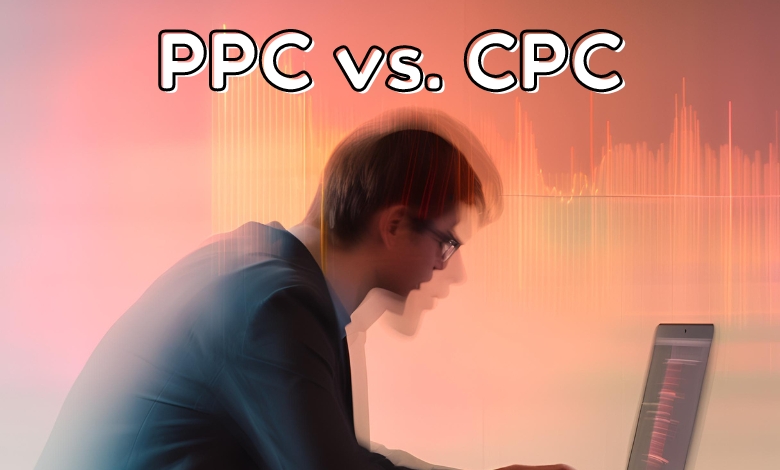PPC vs. CPC: Learn the basics and difference between PPC and CPC in a simple format, perfect for online advertising newcomers.
I’ve been working as a digital marketer and content creator for the past 10 years, and it’s been my livelihood. However, it wasn’t easy at the start.
Digital marketing was overwhelming, with all these terms like PPC and CPC being thrown around. They were confusing, yet they seemed crucial to understand.
Launching my first online ad campaign was thrilling, as I hoped to attract more visitors to my website. But instead of a flood of visitors, only a few showed up. That’s when I realized my mistake: I had confused PPC with CPC and hadn’t properly set up my budget or strategy for both.
So, I decided to take the time to really learn about PPC and CPC, understanding their differences.
With all this knowledge…
I improved my ads campaigns by focusing on the right keywords, which significantly increased my performance. Thrilled with the results and what I had learned, I decided to write a blog post to share my journey and tips.
The goal of this post is to explain these terms in an easy, accessible way, providing helpful advice and clear information for small business owners, marketers, and digital entrepreneurs, so they can make smart choices.
So, let’s dive right into the topic, shall we? No more time to waste.
Article Breakdown
What is PPC? The Basics
Pay-Per-Click (PPC) is an advertising model that allows businesses to place ads on popular websites, social media platforms, or search engines, and only pay when a user clicks on them. This method of digital marketing is a popular choice for businesses looking to increase brand awareness, drive traffic to their website, and ultimately generate leads or conversions.
According to a report, businesses typically see a $2 return on investment for every $1 they spend on Google Ads. Furthermore, data indicates that PPC ads can increase brand awareness by up to 80%. These figures highlight the significant impact that a well-managed PPC campaign can have on a business’s online presence and profitability.
How PPC Works:
- 1. Businesses select keywords related to their products or services.
- 2. They bid on those keywords in an online auction hosted by a search engine or platform.
- 3. The highest bidders get their ads placed at the top of the search results page, social media feed, or website.
- 4. When someone clicks on your ad, you pay the designated cost-per-click price for that keyword.
PPC offers advertisers a high level of control over their campaigns, allowing them to set budget limits and target specific audiences based on demographics, location, interests, and more.
What is CPC? The Basics
Cost-Per-Click (CPC) is a fundamental concept in online advertising. It refers to the actual price you pay for each click on your ad. This cost can vary significantly, depending on factors like the competition for certain keywords, the quality and relevance of your ads, and the behavior of your target audience. Generally, CPC can range anywhere from a few cents to several dollars per click.
How CPC is Calculated:
1. Ad Rank
The position of your ad on the search results page or website is determined by your Ad Rank. This rank is calculated based on your bid amount, the quality of your ad, and the expected impact of your ad extensions and other ad formats.
2. Maximum Bid
This is the highest amount you’re willing to pay for a click on your ad. You set this during the campaign setup process.
3. Quality Score
Search engines like Google use algorithms to assess how relevant and useful your ad is to its intended audience. Your Quality Score is based on factors such as ad relevance, expected click-through rate, and the quality of your landing page experience.
The Key Difference Between PPC and CPC
Let’s take a closer look at the key differences between these two commonly used terms:
- Pay-Per-Click (PPC) refers to the advertising model where businesses pay for each click their ads receive.
- Cost-Per-Click (CPC) is the actual amount a business pays for each individual click on their ads.
In other words, PPC is the overall concept, while CPC is the specific monetary value associated with that concept.
The Power of Combining PPC and CPC
If you’re weighing your options, you might be wondering which advertising approach is better – PPC or CPC. The truth is, these two methods work hand-in-hand to create successful advertising campaigns.
Here are some of the key benefits of utilizing both:
Budgetary Control: With PPC, you can set a daily or monthly budget for your ad campaign, preventing overspend and helping with effective financial planning.
Targeted Audience: Using CPC allows businesses to target specific audiences who are more likely to be interested in their products or services, increasing the chances of generating leads and conversions.
Real-time Insights: Both PPC and CPC provide real-time data on campaign performance, empowering businesses to make quick adjustments and optimize their strategy as needed.
Choosing the Right Fit for Your Business
When it comes to PPC and CPC, it’s not about declaring one as the clear winner. Both approaches have their advantages and drawbacks. Here’s what to consider:
| PPC | CPC | |
| Good Stuff | You can decide exactly how much you want to spend. | It could cost you less for every click, which might mean more profit. |
| You only pay if someone clicks on your ad, not just for showing it. | You might see results quicker than just waiting for people to find you through a search. | |
| You can pick who sees your ads, like targeting people by their interests or where they live. | It lets you clearly see how well your ads are doing with real numbers. | |
| Not-So-Good Stuff | It might get expensive, especially if you’re after popular keywords. | You might end up spending more than you planned because prices can change. |
| You have to keep tweaking and looking after your ads all the time. | You can’t be sure where your ad will show up because it depends on bidding. | |
| You need to keep an eye on your ads and adjust them often to stay in the game. |
Practical Tips for Optimizing Your PPC and CPC Campaigns
To maximize the benefits of your PPC and CPC initiatives, try these strategies:
- Keyword Relevance: Select keywords that are closely aligned with your offerings. This improves the chance of higher ad quality scores, leading to lower CPCs.
- Quality Score: Focus on creating compelling ad copy and landing pages that provide value to your audience. High-quality scores often result in reduced CPC and better ad positioning.
- Bidding Strategies: Experiment with different bidding approaches, from manual bidding for precise control to automated bidding strategies like CPA (Cost-Per-Acquisition) or ROAS (Return on Ad Spend) targeting for efficiency at scale.
- Audience Targeting: Refine your audience targeting options to ensure your ads are seen by those most likely to convert, thus improving both PPC and CPC performance.
The Wrap-Up
We’ve learned a lot together on this journey – from the fundamentals of PPC and CPC to discovering ways to enhance our campaigns. I sincerely hope this guide has empowered you to feel ready and confident in making smart choices for your business’s online marketing. The digital landscape is constantly evolving, and it’s crucial to stay up-to-date for success. Whether you’re just starting with PPC and CPC or trying to refine your current efforts, remember that embracing new ideas and adaptability are the keys to reaching your marketing goals. Wishing you all the best in the ever-changing world of online advertising.
Useful Resources:
FAQs
1. Is there a difference between PPC and CPC?
Yes, there is a significant difference between the two terms. PPC refers to the overall advertising model, while CPC is a specific metric used to measure the cost of each click in a PPC campaign.
2. What is the difference between average CPC and actual CPC?
Average CPC is the average cost you pay for each click in your campaign, while actual CPC refers to the precise amount you pay for a particular click.
3. What is the difference between PPC and CTR?
PPC measures the overall cost of a paid advertising campaign, while CTR (Click-Through Rate) is a metric that evaluates the percentage of clicks an ad receives in relation to the number of impressions it receives. CTR is often used to assess the effectiveness of ad campaigns and ad copy.
4. What is a good CPC for PPC?
A good CPC varies depending on the industry and competitiveness of keywords. However, an average benchmark for a successful PPC campaign is considered to be anywhere from $1 – $2 per click.
5. How can I improve my PPC and CPC performance?
There are various strategies you can implement to optimize your PPC and CPC campaigns, including keyword relevance, quality score improvement, bidding strategies, and audience targeting. Continuously testing and refining your campaigns can also lead to improved performance over time. Overall, the key is to understand your audience and provide them with valuable content that encourages conversions.
Note: This document serves as an informative guide and does not constitute professional or legal advice. Please consult with a digital marketing expert for personalized recommendations.



